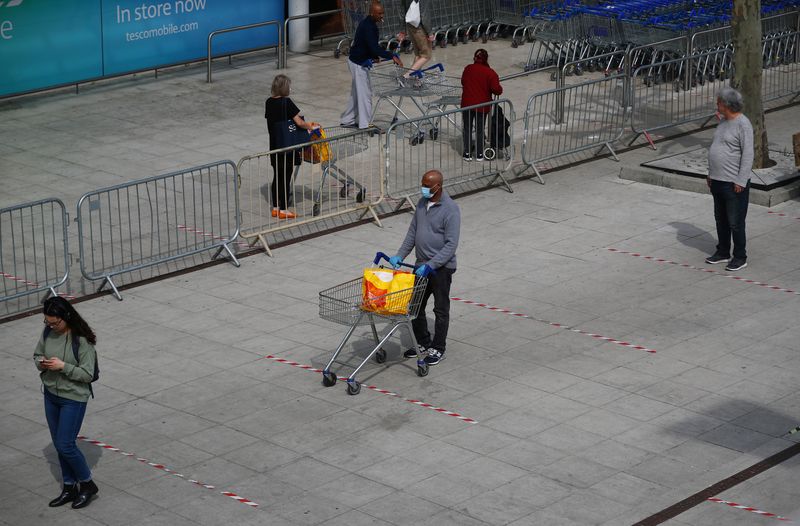LONDON (Reuters) - Grocery sales in Britain rose 10% year-on-year in the four weeks to July 11, slowing from previous weeks as COVID-19 restrictions were eased to allow hospitality and leisure outlets to reopen in England, industry data showed on Tuesday.
Market researcher Nielsen said the growth was down from 14% in last month's report. The government allowed pubs, cafes and restaurants in England to reopen on July 4, giving people an alternative to eating at home.
Nielsen said online grocery purchases leapt 115% year-on-year, accounting for a record 14% of all grocery spending in the United Kingdom.
Morrisons (L:MRW) was the best performer of Britain's so-called "big four" supermarket groups in the 12 weeks to July 11, with sales growth of 15.7%, followed by market leader Tesco (L:TSCO) with growth of 12% and No. 2 Sainsbury 's (L:SBRY) with growth of 10.2%. Walmart (N:WMT) owned Asda was again the laggard with growth of 8.7%.
The big four's growth was dwarfed by Iceland, whose sales surged 30.4% as shoppers bought more frozen food.
German-owned discounters Aldi and Lidl saw a marginal loss of market share, partly reflecting their lack of a major online offer.
Looking at the full 16 week UK lockdown period, Nielsen said shoppers spent a total of 49 billion pounds ($62 billion) on groceries, tobacco and general merchandise - an extra 3.2 billion pounds compared with the same period last year.

Shopping habits also changed, with the number of visits down but the amount spent on each visit up. Also of the incremental spend, 47% of it was made at convenience stores, Nielsen found.